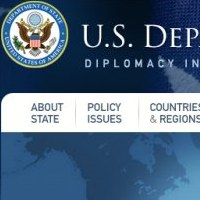![]()
Thursday, February 6, 2014 | MEForum | by Efraim Inbar
First published in Israel Hayom.
US Secretary of State John Kerry is warning that Israel faces economic embargoes if a US-drafted framework agreement with the Palestinians fails to go forward. While the merits of the current American diplomatic initiative are debatable, Kerry’s warnings clearly have a deleterious effect: they feed the Boycott, Divestment and Sanctions (BDS) campaign being waged by Israel’s enemies, and create the false impression that this campaign is a significant threat to Israel.
The BDS effort has thus far had little success. For the moment and for the near future, it constitutes a bearable nuisance for Israel, not more.
Due to wise economic policies that have gradually distanced Israel from its socialist past, the Jewish state has adapted well to a globalized economy. With the exception of isolated cases, Israeli exports are well received all over the world, particularly if they are competitive in quality and price. Israel has found ways to penetrate important markets and Israeli products are even imported by Arab states. Moreover, some Israeli-made products have unique qualities which make them indispensable. Israeli high-tech components have become part of core embedded systems of many global brands. Most Israeli businessmen hardly meet obstacles that are connected to political animosity toward Israel.
Moreover, it is important to note that many previous American diplomatic efforts to bring peace in the Middle East have failed, yet this has not created long-term adversarial conditions for Israel – even if Israel was partly blamed for the lack of American success. The linkage between American diplomatic efforts and the fate of Israeli economy is tenuous, at best.
A survey of the international scene also indicates that the impact of BDS efforts is unlikely to grow dramatically in the coming years. Attempts to boycott Israeli products are unlikely to be successful in America, Israel’s number one export country. American public support for Israel has remained stable for the past two decades at over 60 percent. A variety of legislative steps have already been adopted to prevent a boycott of Israeli products or institutions. Even the current administration, which has been more than once at loggerheads with Israel on Middle East issues, firmly states its opposition to BDS.
Several Western European states, prime recipients of Israel’s exports, are indeed displaying a growing anti-Israel bias, despite good bilateral relations. Many Europeans have lost the shame of being anti-Semitic as Holocaust memories fade away. Therefore, a heightened boycott of Israeli products is conceivable. Yet as the Euro crisis lingers and the European population ages, the purchasing power of European countries is in decline. In addition, even in Europe there are strong pockets of pro-Israeli sentiment. The EU itself has announced that it has no plans whatsoever to boycott the Israeli economy. Israeli products originating beyond the Green Line are a different story, but only a small part of Israeli economic activity is sourced in the settlements.
Israeli exports are gradually, albeit too slowly, being redirected to Asian markets. The large Chinese and Indian economies are growing fast, and these societies do not carry historical anti-Semitic baggage. Moreover, Israel is generally viewed in Asia as a successful country and a model to be emulated. This is true even in Central Asian states whose populations are largely Muslim.
At the same time, the political clout of the Arab world – considered a natural ally of the Palestinians – is decreasing. The Arab world is in the midst of a deep political and socio-economic crisis, with failed states such as Syria, Iraq, Yemen, and Libya. Egypt, the most important Arab state, faces tremendous domestic challenges and is allied with Israel against Islamic radicalism. Saudi Arabia is more concerned with the rise of Iran than the Palestinian issue, as is most of the Sunni world. Finally, the growing energy independence of the US diminishes Arab leverage.
Thus, Israel has overcome the boycott of the relatively stronger Arab world, and the BDS movement’s attempts to harm the Israeli economy are unlikely to produce a different outcome.
Indeed, it takes a lot of imagination to see a concerted international effort to boycott the Jewish State. If Israel continues to make products with a clear qualitative edge at competitive prices, there will be many customers to buy them.
This leads to the conclusion that the boycott threat is exaggerated. Secretary Kerry is simply echoing the arguments of the Israeli political Left, which claims that an agreement with the Palestinians is the only way to escape international isolation. Moreover, irresponsible elements of the Left are asking for foreign pressure on Israel, realizing that they have no chance to change Israeli policies at the ballot box. The Left’s electoral decline makes it more desperate and less democratic; hence its conclusion that “Israel has to be saved from herself” by the international community.
Fortunately, Israel is not internationally isolated and most of the world does not care enough about the Palestinians to sacrifice the benefits of good bilateral relations with Israel. Israel has the leeway to decide for itself what is good for its future.
Prof. Efraim Inbar, director of the Begin-Sadat Center for Strategic Studies, is a professor of political studies at Bar-Ilan University, and a fellow at the Middle East Forum.



 RSS
RSS











Latest Comments
Hello Mike, Thank you for your positive feedback to the article. I felt there wasn’t too much critical analysis of ...
Thanks for this considered and well constructed article. A follow up article on the manner in which the editorial contro...
THE CLUELESSNESS OF CLAIMING THAT OBAMA'S MIDDLE EAST POLICIES WERE A FAILURE CANNOT BE FURTHER FROM THE TRUTH, WHAT THE...
As long as Obama is the president of the usa do not trust the us government......
Thank you for an good read....